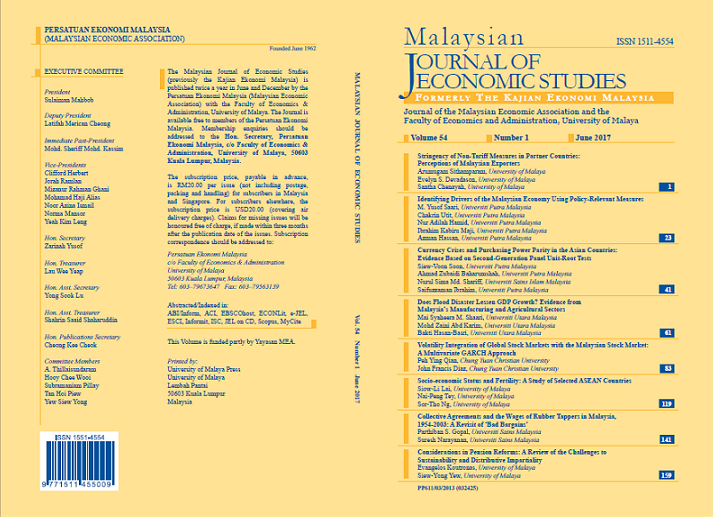Collective Agreements and the Wages of Rubber Tappers in Malaysia, 1954-2003: A Revisit of ‘Bad Bargains’
DOI:
https://doi.org/10.22452/MJES.vol54no1.7Keywords:
Collective bargaining, daily wage, performance payments, price bonus, rubber plantationAbstract
Drawing on collective agreements pertaining to rubber tappers in the Malaysian plantation sector for the period, 1954-2003, the authors re-examine three
conclusions of previous studies: (i) real earnings of tappers had not increased, (ii) the prosperity sharing provision in the agreements was ineffective in passing some of the windfall gains to workers; and (iii) the overall payment scheme, with fixed and flexible components, only benefited employers. These claims, if left to stand without careful re-examination, would represent a serious misinterpretation of facts. Our findings show that overall earnings have kept pace with rising inflation and the prosperity sharing mechanism benefited workers in 43 out of the 46 years since its introduction in 1959. The flexible wage system, while benefitting employers, also protected labour employment in times of rubber price downswings.

